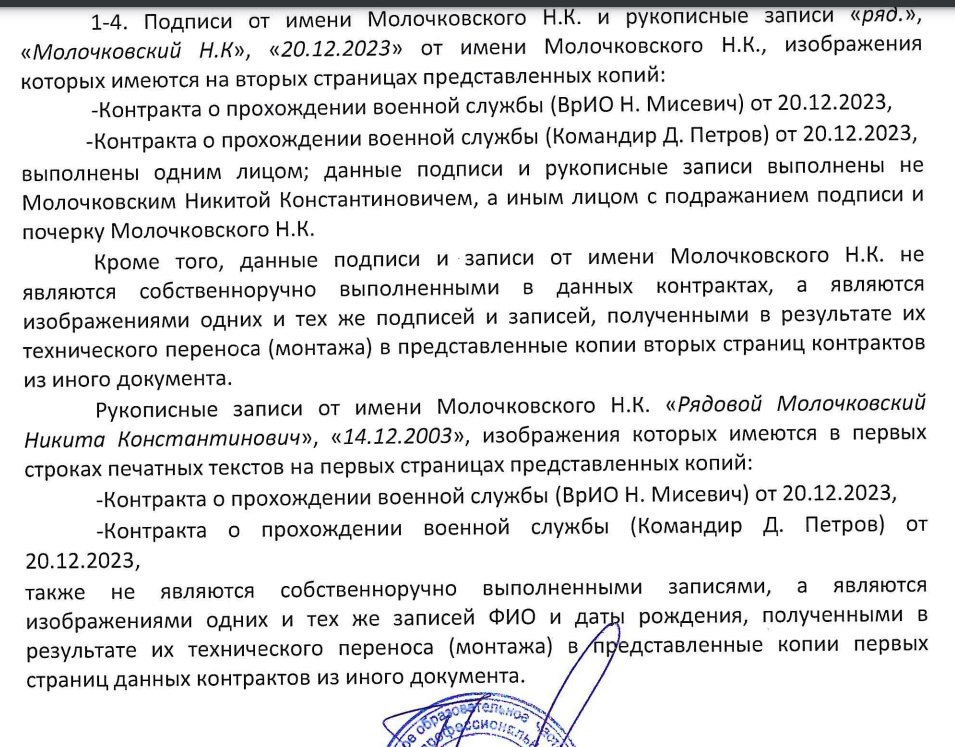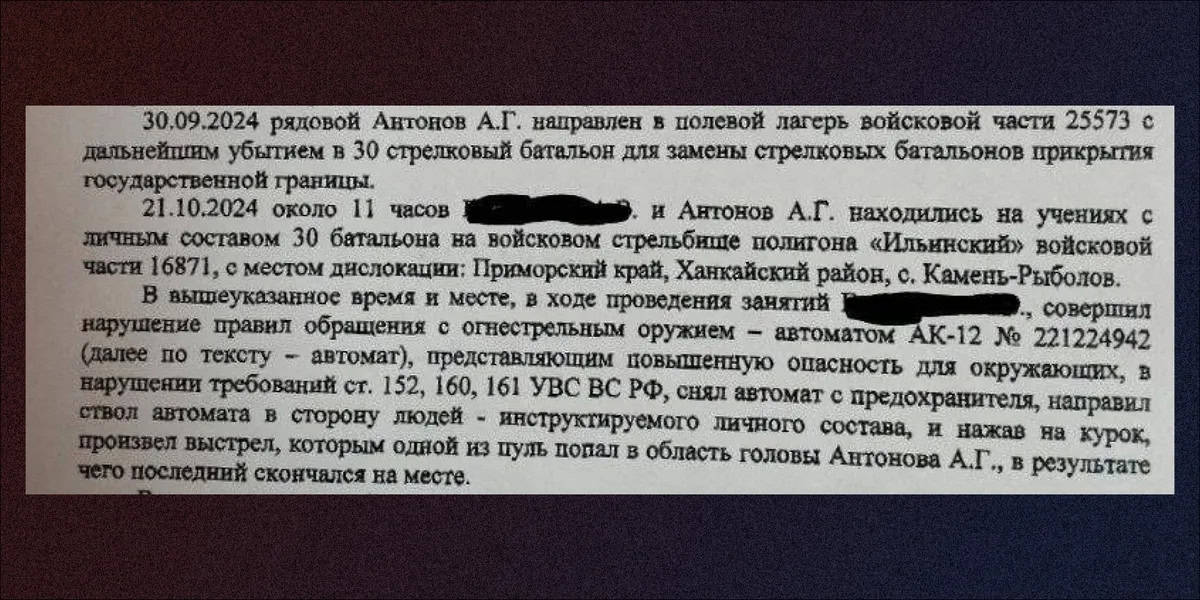Russian Conscripts Fighting Forged Contracts Killed in Ukraine War
15 December, 2024 Russian soldiers, the photo is illustrative. Photo from open sources Three Russian conscripts suing the Ministry of Defense over forged contracts were killed in action against Ukraine, Okno reported.
The three men from Sakhalin (Karafuto) had been in a legal battle with the ministry for nearly nine months. In December, it was confirmed that the last of them, Viktor Baturin, had died. Experts officially confirmed the forgery of their signatures only after their deaths.
 A document certifying the forgery of signatures on contacts.
A document certifying the forgery of signatures on contacts.
Source: Okno
The fate of Viktor Baturin
In early December, 21-year-old Viktor Baturin's coworkers said that on November 23, 2024, he was sent to a meatgrinder-style assault mission near Yelizavetivka in the Pokrovsk district of the Donetsk region. He did not return from that battle, and his body was never evacuated. Less than a month before, Viktor was hospitalized with shrapnel wounds to his arm and leg.
His mother tried to take her son home, but did not manage to make it in time: he was sent to the assault with unhealed wounds. Despite the words of his comrades, Viktor's mother still hopes that he is alive.
 Viktor Baturin. Photo credits: Okno
Viktor Baturin. Photo credits: Okno
Sakhalin conscripts
On November 19, 2023, Viktor Baturin and Nikita Molochkovsky were drafted to military unit 71435 in the Sakhalin village of Lagunnoe.
In April 2024, they received strange payments in the amount of 300,000 rubles to their accounts, after which they filed lawsuits. The first hearing of the case took place on May 3, 2024. The investigation revealed that as early as December 20, 2023, "voluntary" contracts for two years were signed for conscripts--Molochkovsky, Baturin, Nikita Borisov, and at least four other soldiers.
 Nikita Molochkovsky.
Nikita Molochkovsky.
Photo credits: Okno
The documents were falsified by the commander of the 71435 unit, Petrov, and the acting lieutenant colonel Misevich. Molochkovsky was killed in August, and Borisov, according to his comrades, was killed even earlier. Only in December, after the deaths of all three, the mother of 20-year-old Nikita Molochkovsky, Natalia, received official confirmation that her son's contract had been forged.
The falsification of the documents was confirmed by the Institute of Forensic Expertise and Criminalistics, which is listed in the register of the Ministry of Justice of the Russian Federation.
Forcing Russian conscripts to go to war
On December 6, it was reported a 19-year-old Russian conscript was shot dead at a training ground in the Primorsky Krai of the Russian Federation after refusing to go to war in the Kursk oblast. A lieutenant of the 394th Motorized Rifle Regiment shot a 19-year-old conscript from Tatarstan with a Kalashnikov rifle while preparing to be sent to the border with Ukraine. The murder took place on October 21 at the Illinsky training ground of the 60th Motorized Rifle Brigade in the Primorsky Krai.
After training at the training ground, the conscripts were supposed to go to replace motorized rifle units securing the border in the Kursk oblast.
 Photo of the materials of the investigation into the murder of a conscript. Photo credits: "Vazhnye Istorii" (Important Stories)
Photo of the materials of the investigation into the murder of a conscript. Photo credits: "Vazhnye Istorii" (Important Stories)
Amid declining interest in signing contracts with the Russian army, despite increasing payments, the military leadership is attempting to coerce conscripts into signing contracts for deployment to the war. In addition to psychological pressure and physical coercion of conscripts, military units also resort to falsifying and signing contracts with the Russian army without the consent of the soldier.
In particular, in October 2024, seven conscripts told journalists that they had received one-time payments from the Ministry of Defense to sign a contract. This was not the first known case of this kind. At the same time, all seven claimed that they had not signed anything and did not intend to stay in the Russian army for more than a year.
Nevertheless, the military leadership refused to take the money back from the conscripts.
No one from the conscripts could write an application for refusal, as they were not released from the unit.
Conscripts shared that, as a result, they would be forced to go to the front line in the near future.